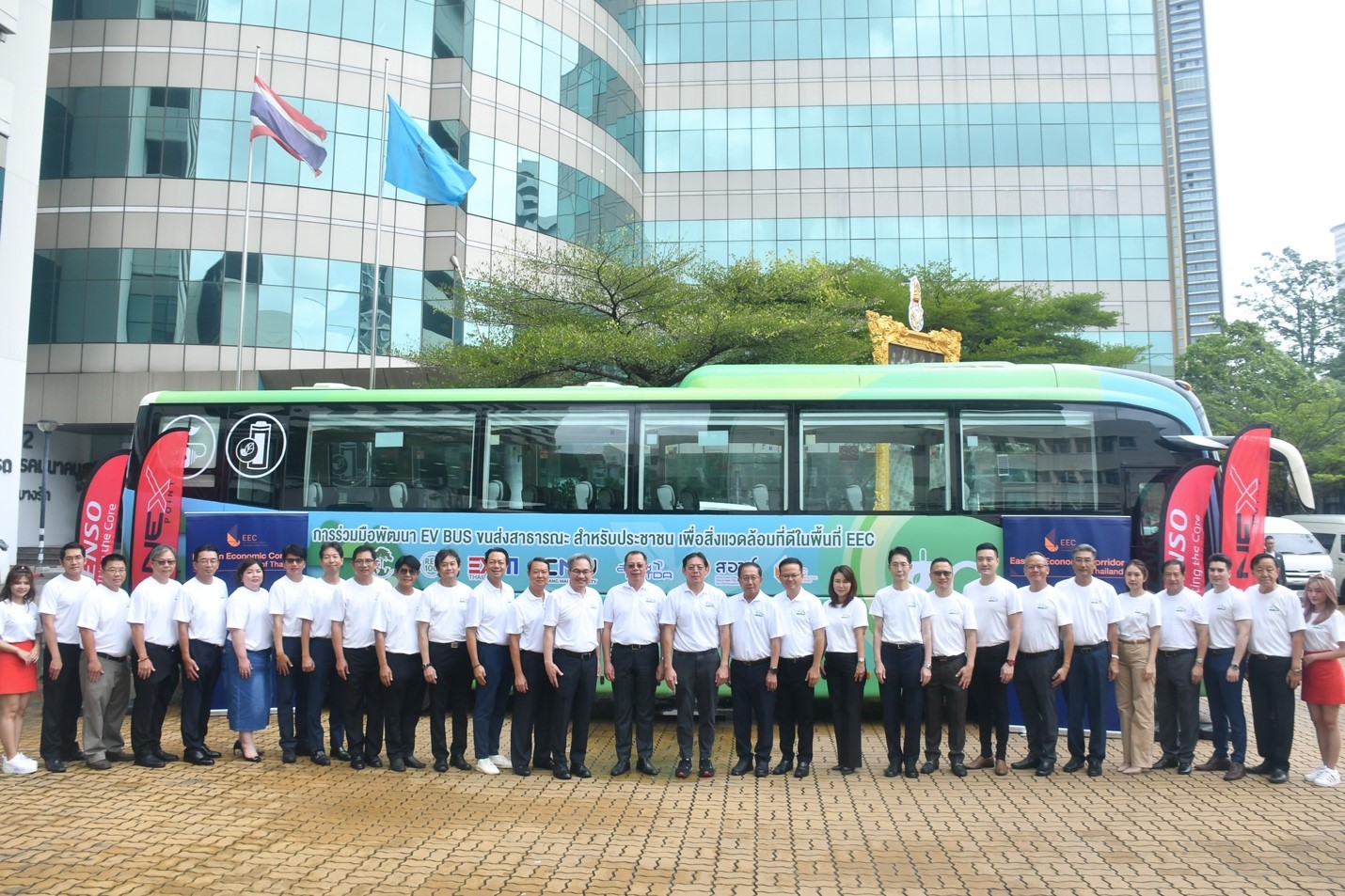
On 28 September 2023, NSTDA joined a consortium of seven organizations to launch an initiative aimed at promoting the use of electric buses for public transportation and employee shuttle services in the Eastern Economic Corridor (EEC). The other six parties involved in this collaboration included the Eastern Economic Corridor Office of Thailand (EECO), the Office of National Higher Education Science Research and Innovation Policy Council (NXPO), Chiang Mai University, the Export–Import Bank of Thailand (EXIM Bank), the Thai Renewable Energy Association (RE100), and the Clean Energy for Peoples Foundation (CEP).
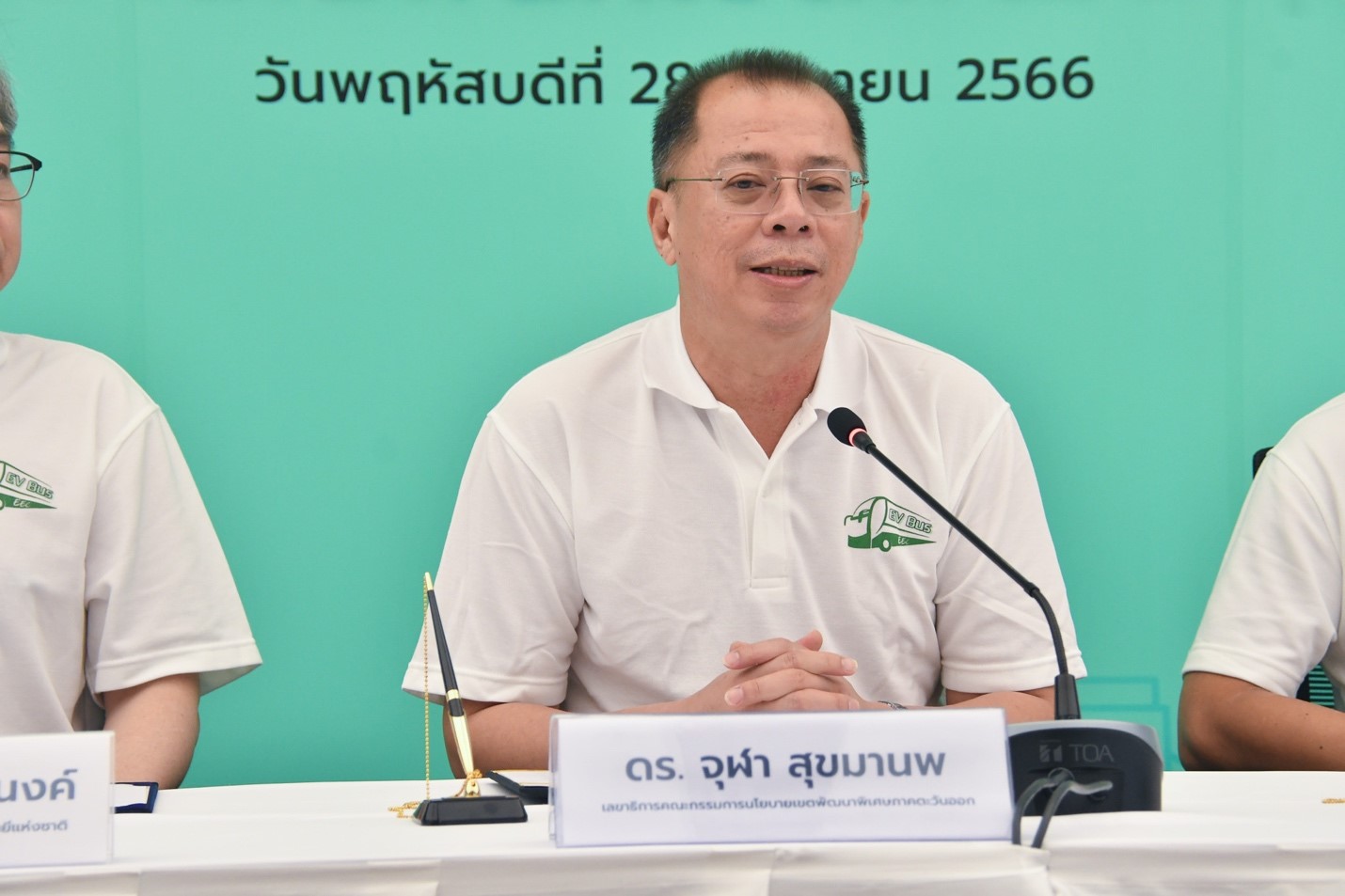
EECO Secretary-General Dr. Chula Sukmanop emphasized that this MOU would help attract investments to emerging industries in the EEC, with a particular focus on the electric vehicle (EV) sector. This initiative is expected to make a significant contribution to the EEC’s vision of achieving net zero carbon emissions. Over the first five years, its goals include a 10% greenhouse gas emissions reduction and a target of 40% of new investments in the EEC being directed towards green businesses. He further added that EECO is committed to facilitating and developing a comprehensive investment mechanism for the EV industry where all parties will collaborate to support technology development, knowledge transfer, infrastructure development, and the installation of charging stations. EECO will also work on investment promotion measures for the EV industry, including both tax and non-tax incentives, with the aim of not only promoting the EV industry but also driving the BCG national agenda.
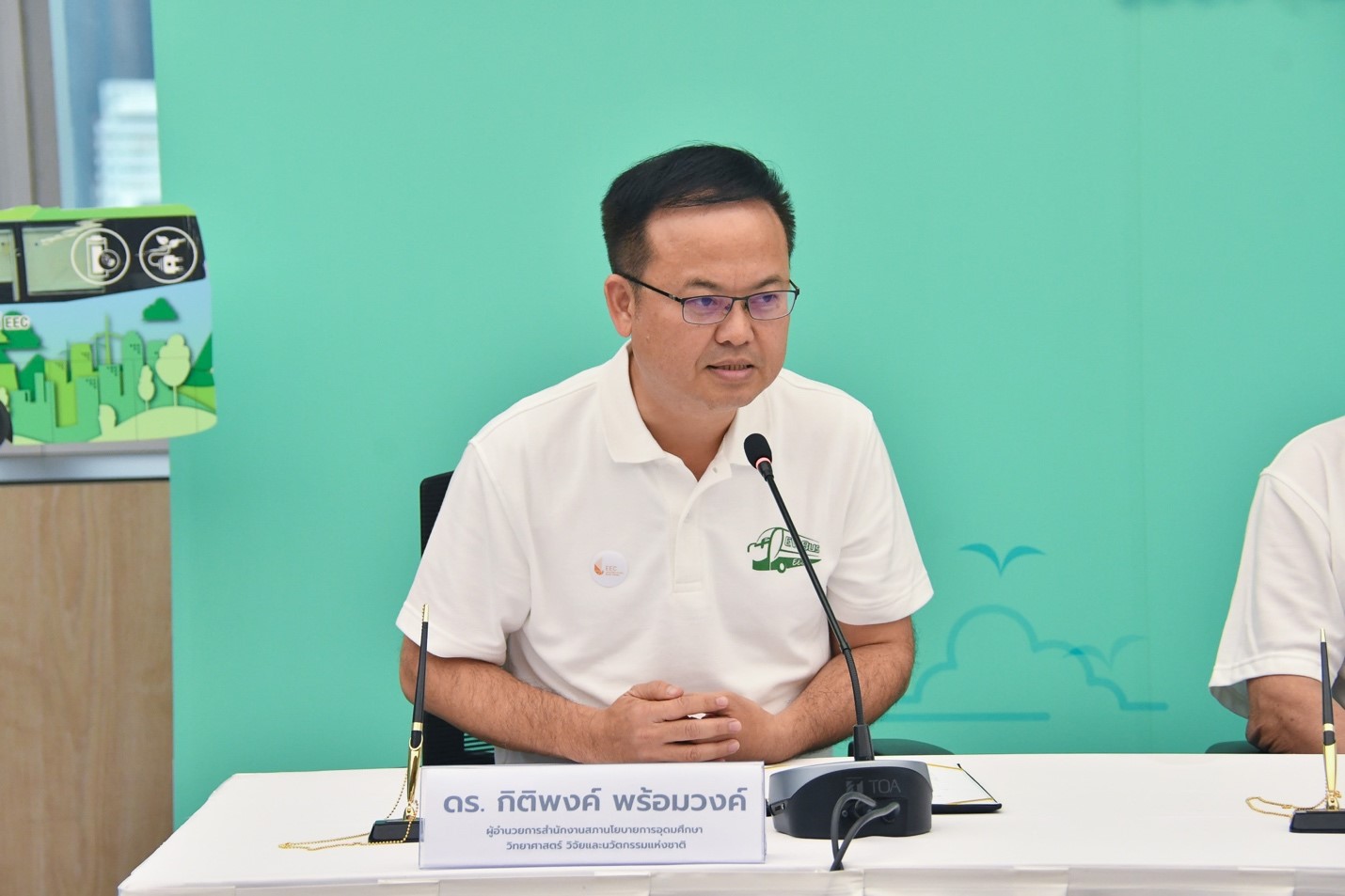
NXPO President Dr. Kitipong Promwong remarked that as a driver of higher education and science policy, NXPO will play a vital role in connecting the public and private sectors to establish a robust supply chain for EV production. This will involve promoting technology transfer and human resource development. Once this model proves successful in the EEC, strategies will be devised to scale it to the national level, enabling the country to achieve multiple targets, including EV production, the adoption of zero-emission transportation, and greenhouse gas reduction.
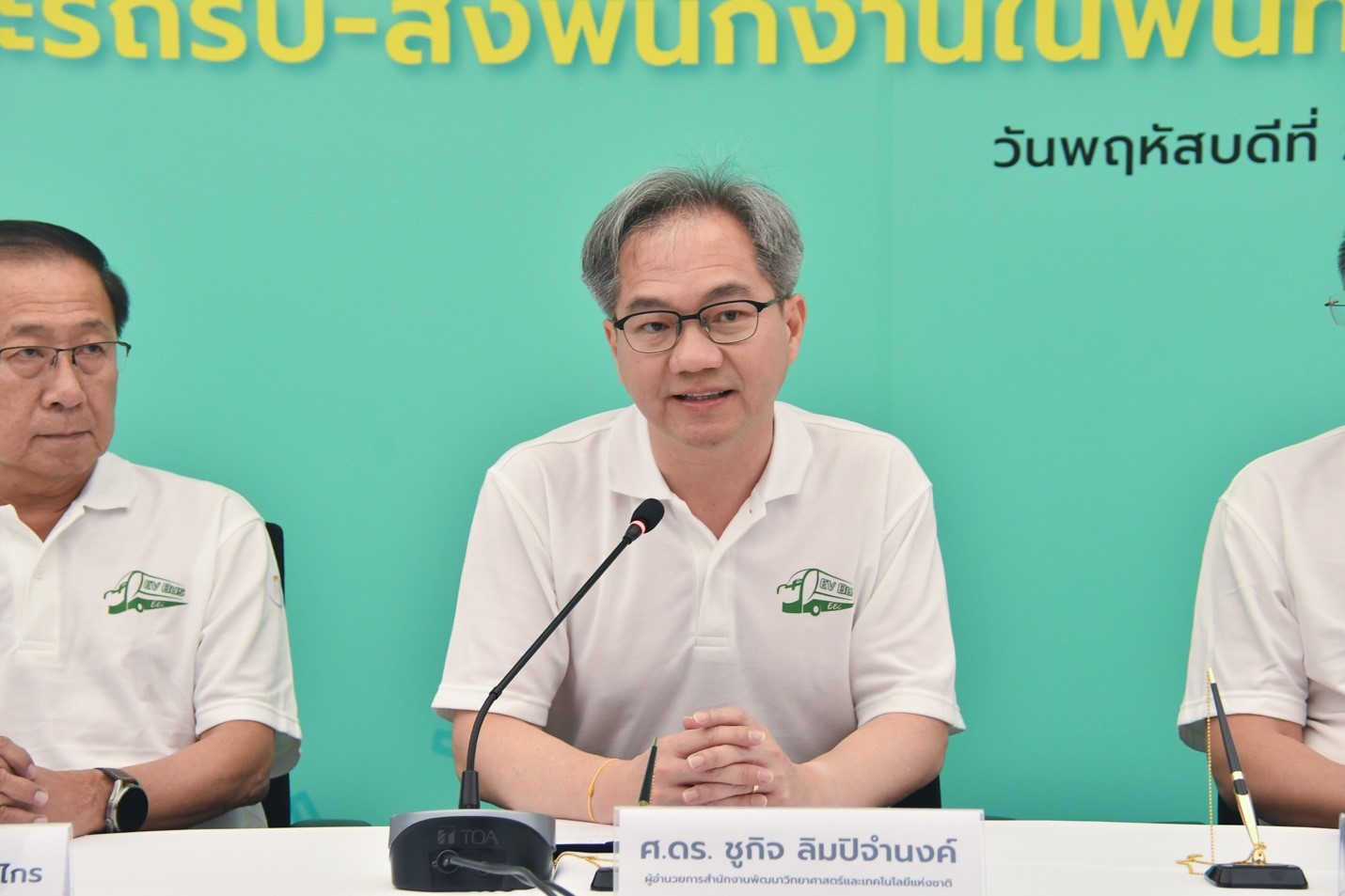
NSTDA President Prof. Dr. Sukit Limpijumnong discussed NSTDA’s role in this initiative as a technology provider to ensure a smooth transition from research to application. NSTDA’s research in this field encompasses battery technology, electric motors, EV control systems, lightweight material for vehicles, vehicle dynamic analysis, charging systems, and autonomous driving technology. The agency also provides testing services for EV electric and electronic components at its Electrical and Electronic Products Testing Center (PTEC).
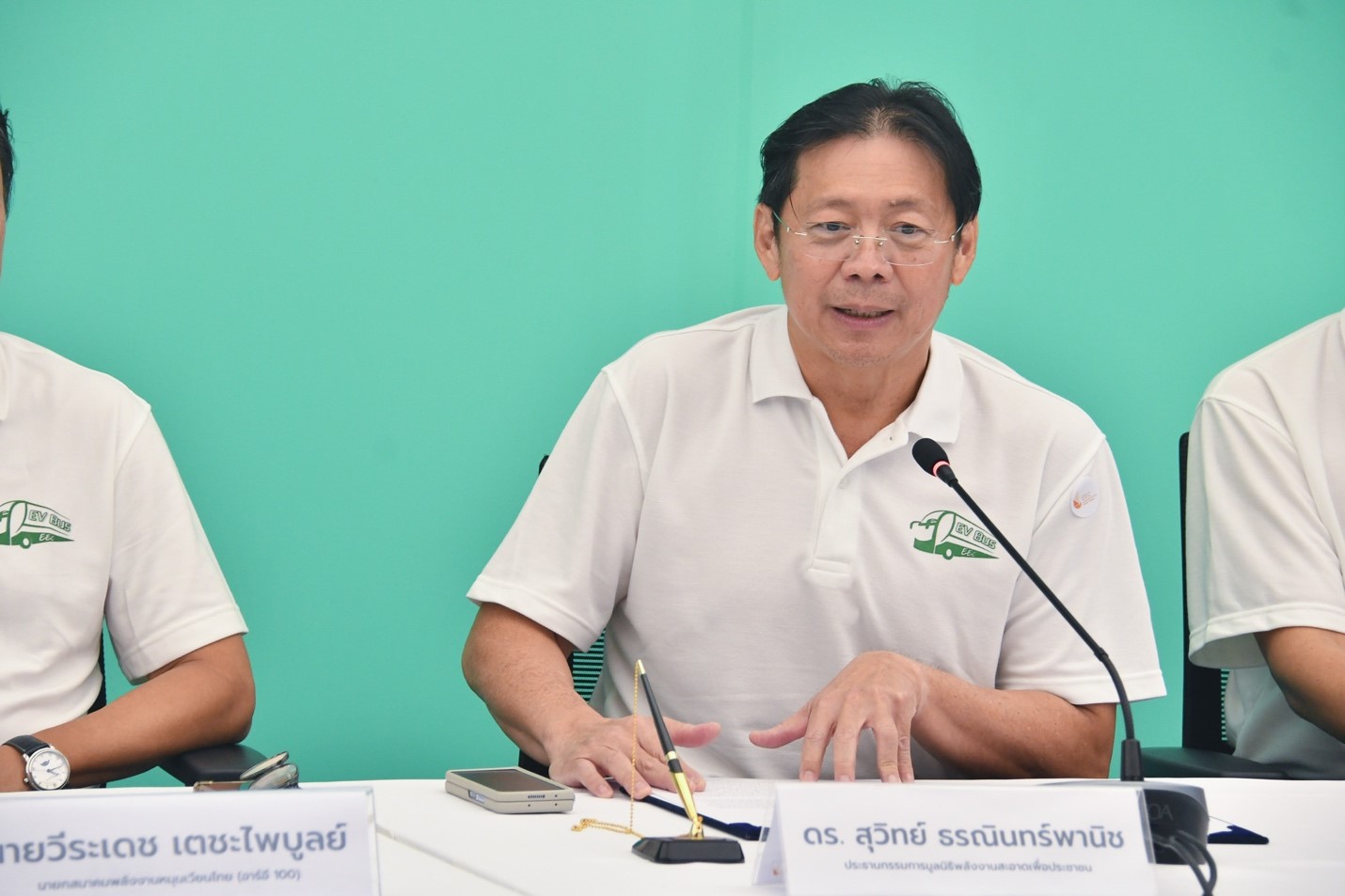
CEP Chairman Dr. Suvit Toraninpanich stated that this initiative would serve as a model for the implementation of EV buses for public transportation and employee shuttle services. It is planned to introduce at least 100 EV buses along with a charging station this year, which is expected to reduce greenhouse gas emissions by approximately 5,000 tons per year and contribute THB 360 million to the economy. If 10,000 electric vehicles are adopted within two years, it could add more than THB 48 billion to the economy and reduce greenhouse gas emissions by 0.5 million tons per year.
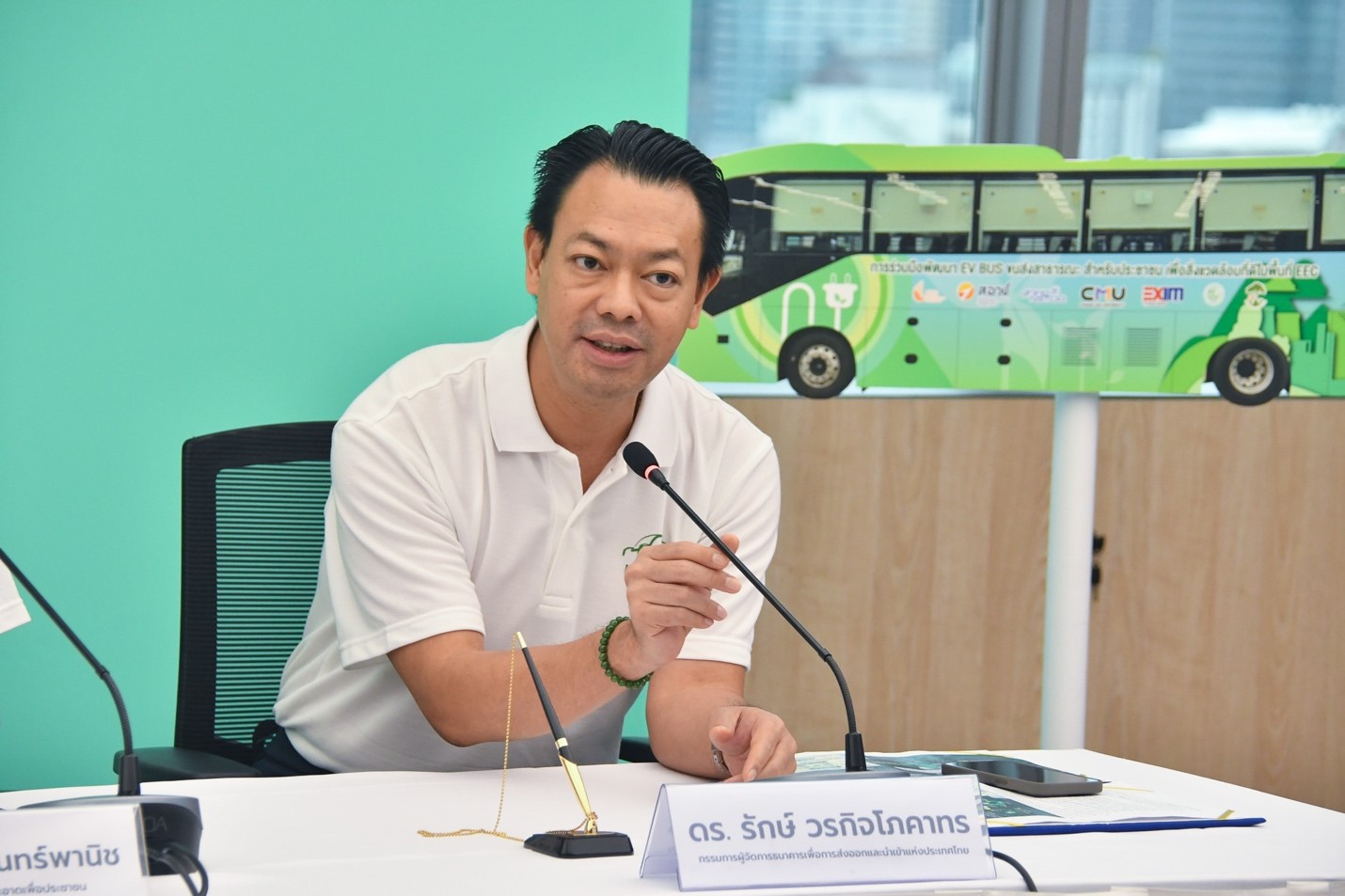
EXIM Bank President Dr. Rak Vorrakitpokatorn said that the bank has set its vision for 2027 to drive Thailand’s trade and investment strategies for sustainable growth on the global stage. To promote climate action, the bank has introduced a new product called “EXIM Green Start” aimed at enhancing the liquidity of green businesses. In this collaboration, the bank will support access to financial services for EV businesses, an essential component of green growth.
